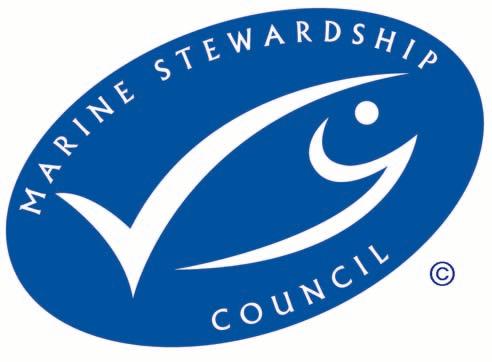by Sophie Benbow, Southwest Regional Coordinator, Madagascar
On February 13th 2012 I attended a conference organised by the Marine Stewardship Council (MSC) to discuss issues faced by developing world fisheries when it comes to eco-label certification. The MSC logo, the blue tick, is the most globally recognised eco-label and is found on 10,000 products originating from 105 fisheries worldwide, covering 56 marine species. Fishery engagement in the certification process has consistently doubled every year since 1999, but in spite of this rapidly increasing trend, 90% of global fisheries remain unengaged, and may well be operating unsustainably. To date only 2 fisheries from developing countries have been certified due to the particular constraints faced by developing world fisheries, namely lack of financial resources and formal management structures.

MSC logo, the world famous ‘blue tick’ which indicates a seafood product has come from a sustainable source
People often think marine and fishery scientists have wonderful, glamorous jobs swanning around the world seeing the sights and saving the world at the same time. However, conference attendance is not the barrel of laughs it appears to be, and often you are so busy networking, schmoozing and learning new things that you don’t have time to get out and about and see whatever city you happen to be in. I was in Madrid for less than 48 hours, arriving late on a Sunday afternoon when almost everything (including bars and restaurants) seems to be closed as Spain seems to be one of the few remaining European countries which respects Sunday as a day off.

The main road by the metro station, and pretty much all I got to see of the historic city of Madrid!
The conference kicked off on Monday with a series of case study presentations from fishery managers from around the world. Totally fascinating to hear from other countries of the challenges and results they have achieved. Particularly inspiring were the examples from Mexico, Suriname and Mozambique. The lobster fishery in Baja, Mexico has been certified for nearly 10 years but has yet to sell a single product with the MSC logo. Instead the fishers pride in obtaining certification is communicated to the government who then invest resources in developing infrastructure and social amenities to help further boost the fishery. In Suriname, Heiploeg a European commercial processor has heavily invested in developing a Fishery Improvement Plan (FIP) for the seabob fishery (a type of shrimp) and certification has been gained as a result of their considerable investment. Finally in Mozambique it was so fantastic to hear from a fishery official who completely understands the benefits of certification, and where it is the government that is pushing, with support from WWF, for certification of the deep water shrimp trawl fishery.

Conference venue with Mozambique fisheries minister presenting their progress with the shrimp fishery
In southwest Madagascar, the octopus fishery has successfully undergone an MSC pre-assessment and we are currently engaged in the development of a FIP to implement the formal management techniques we need in order to proceed to full certification. Blue Ventures pioneered temporary closures for octopus fishery management in 2004 and this model has since undergone near viral replications all along the southwest coast and even to the northern regions of the country. Through continued collaboration with fishing communities, commercial collectors and community management units we hope to obtain the MSC stamp of sustainability for our octopus. The benefits of this are a potential price premium to fishers, but perhaps more importantly the knowledge that the resource will be around indefinitely and the resulting generation of community pride in the fishery if it can achieve global recognition as a sustainable source of octopus.


